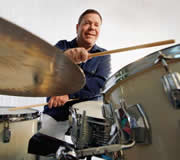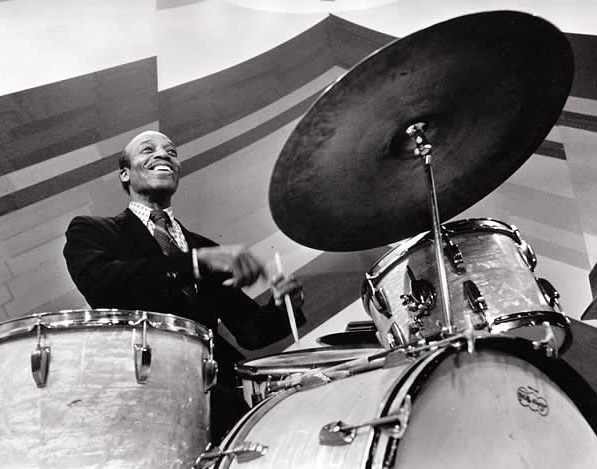THE FIRST–AND MAYBE THE ONLY–JAZZ “REALITY” TALENT COMPETITION
Thursday, October 18th, 2012Television reality shows, specifically amateur talent competitions, focus on everything from singing and dancing to cooking and home remodeling.
Think there will ever be a reality/competition program devoted to jazz?
You never know, but the fact is, there actually was one, and it had all the qualities of today’s programming, excepting the fact that this one was anything but an amateur show.
Around 1962, an somewhat elderly gent and jazz fan–whose name escapes me– who had served in the production department of Universal Pictures for years had an idea for a television pilot.
His concept was simple: Pit two, “name” jazz groups againist each other in friendly competition, hire celebrity judges and a celebrity host, determine the winner by the amount of audience applause, award the winner $6,000 in cash and the opportunity to slug it out against another group the following week, and give the loser a generous $4,000.
This actually happened. The title was “Championship Jazz” and the television pilot was filmed before a live audience in 1962. Voice of America’s famed WIllis J. Conover was hired as host. Writer George T. Simon and Woody Herman signed on as celeb judges.
The bands? The Dukes of Dixieland, and none other than the Gene Krupa Jazz Quartet featuring Charlie Ventura.
This is an absolutely incredible program and is the only filmed record of Gene’s famed group at the time, which also featured pianist John Bunch and bassist Knobby Totah, playing “Drum Boogie,” “Dark Eyes” and “Big Noise from Winnetka.”
I won’t divulge the winner.
As great as this was, it never made it to television, and that’s sad, because groups being considered as future competitors included the Modern Jazz Quartet, Oscar Peterson Trio, George Shearing Quintet, etc.
Wow!
JazzLegends.com went to great, great lengths to obtain a screening copy (with time code at the bottom of the screen) of this superb and semi-legendary half-hour program.
It’s listed under “The Champ” (the second half features the entire Krupa/Rich drum battle sequence from the Sammy Davis TV program of 1966)
If you don’t have it, you should. This is, after all, reality.






